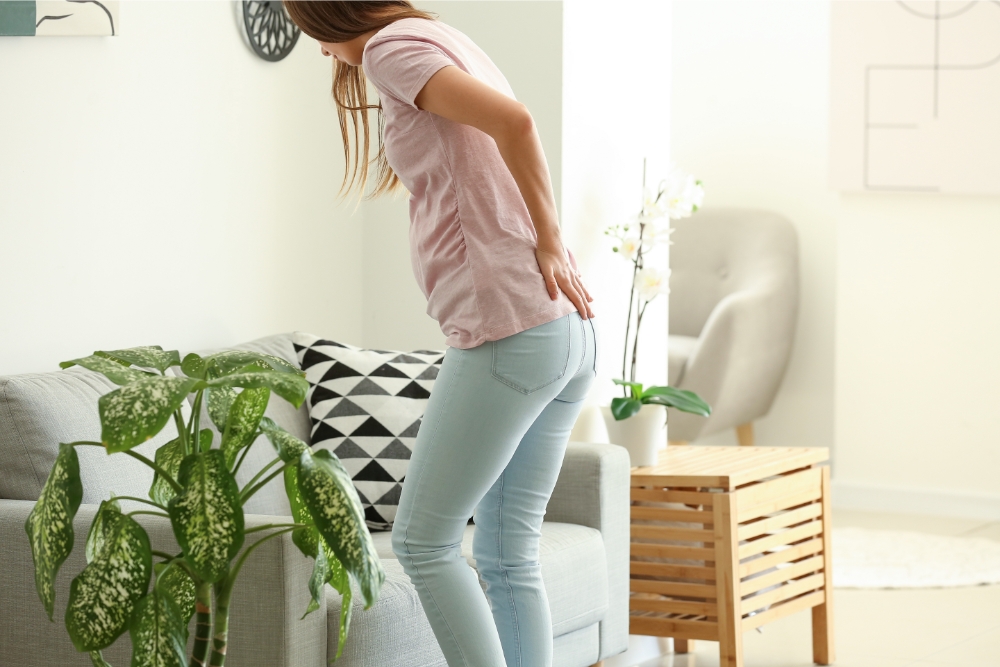The media frequently promotes probiotics as a sensible approach to maintaining a healthy digestive tract. You may wonder if there are any genuine health benefits for your stomach or if they’re merely a fad. You might be particularly interested in finding out if there is a link between probiotics and hemorrhoids if you are experiencing hemorrhoids.
You’ll be relieved to hear that including probiotics in your regimen might help to improve your health. Hemorrhoids may tend to occur due to many different reasons. According to the stats, about 75% of Americans experience hemorrhoids in their life.
What are Hemorrhoids?

Hemorrhoids are usually the type of varicose vein that may occur as we age. It may occur due to severe medical conditions like end-stage liver diseases, which can also happen due to increased pressure during pregnancy, obesity, chronic diarrhea, and constipation, and a low diet on fibers and fluids are the common reasons for hemorrhoids. Hemorrhoids can cause discomfort, bleeding, and itching. Hemorrhoids can also cause more severe diseases like anemia or thrombosis hemorrhoids if they are not treated properly at the right time.
Taking Probiotics for Hemorrhoids

Due to the unhealthy lifecycle pattern and stress, the rate of recurrence of constipation is increasing day by day, which results in hard stools that could slow the gut transit time.
In today’s date, probiotics can be very helpful in treating problems related to the gut. Hemorrhoids are simply known as piles; in this condition, you may notice a swollen vein around the anus due to chronic constipation. The live bacteria found in many meals and supplements and in the human body are called probiotics.
Probiotics can help maintain bacteria in the gut that can leave a positive impact on your digestive tract and overall health. Most doctors usually recommend probiotics in the treatment of hemorrhoids, but you must take them with an anti-inflammatory medications or creams to lessen the swellings around your anus.
The doctors recommend probiotics due to their various valuable benefits. Probiotics may lessen the chances of irritable bowel syndrome and inflammatory bowel disease and help regulate bowel movements.
Benefits of Taking Probiotics

There are several benefits of ingesting probiotics while having the experience of hemorrhoids. Probiotics can be helpful in the reduction of inflammation, can also improve your immune function and system, and help to ensure the healthy digestion of food in the digestive tract.
You can easily incorporate probiotics into your daily routine because they are a natural, safe, and operational treatment for your hemorrhoids. According to the research on chronic idiopathic constipation, you can improve your weekly bowel movements with the help of probiotics.
An experiment was conducted on a person who had hemorrhoids, and the person started to have 1.49 more bowel movements after taking the probiotics. However, you can find the common probiotic supplements containing Lactobacillus and Bifidobacterium at any drug store or supermarket.
According to the study, probiotics containing the Bifidobacterium are the most effective in treating constipation. The doctors have also found that probiotics can help the material move smoothly in the digestive tract, and a person using probiotics may experience a 12-hour reduction in time through the gut. The probiotics can also soften your stools. Hence, the constipation can be avoided.
How do you choose the right Probiotics for your treatment?

There’s no doubt that probiotics have proven very effective in treating hemorrhoids, but before starting the treatment, you should consult your doctor first and take several factors into account. Probiotics are of different types, and it is important to determine which would work best for you according to your body type.
Before picking the probiotics, ensure they contain particular strains of bacteria like Bifidobacterium and are tested for potency and purity. Moreover, the doctor may also suggest you try different probiotics and advise you to take the one that suits your body type well.
To avoid any future discrepancies, it is better to consult the doctor before taking the probiotics during the hemorrhoids. A registered dietician could be a smart choice to consult with because he can provide you with valuable insights into the connection between hemorrhoids and probiotics.
Align probiotics, Renew Life ultimate flora, nature-made digestive probiotics, the garden of Life raw probiotics, florastor daily probiotic supplement, and New Chapter probiotic all-flora are some of the top probiotics and doctor’s recommended probiotics available at the drug store.
Are Natural Alternatives effective in treating Hemorrhoids?

We have discussed the importance of probiotics and their uses in treating hemorrhoids. But you may also find herbal treatments or home remedies to treat the disease.
These remedies may have the scientific background in treating hemorrhoids, but they are not recommended by professional doctors as an effective treatment. Let’s look at these home remedies and preventive cures alternatives to probiotics.
Witch Hazel:
Witch hazel, also known as Hamamelis virginiana, is a tree found in North America. Due to its capabilities to cure various diseases like hemorrhoids, sore muscles, insect bites, and various skin inflammations and allergies, people have been using this tree as a treatment.
It can be ingested orally in the body to treat skin and mucus membrane inflammation, vaginal irritation, irritation from hemorrhoids, skin burning, and itching.
However, very little or no scientific evidence can support this theory. It has many side effects like it can cause skin dryness, skin irritation, nausea, vomiting, stomach upset, and liver and kidney damage. The list of side effects is not restricted here; doctors do not recommend this as a vital treatment.
Horse Chestnut:
It is also a tree that produces spiny-shelled fruits with seeds called conkers. It is believed that these fruits have some health benefits, including the treatment of varicose veins and hemorrhoids, but they also have some adverse effects and are not recommended by doctors.
As per the reports of the NICCH, using the leaves and fruits of this tress is unsafe because they contain some toxic components. Experts also do not know how it would affect adults and children, so pregnant and breastfeeding women should not use it as a treatment. Also, there is no research and scientific evidence on how it would affect fertility.
Some of the adverse effects of consuming the horse chestnut are nausea, digestive irregularities, dizziness, headaches, allergy reactions, and itching, and it can also cause ulcers, swelling on one or both legs and renal insufficiency.
Butcher’s Broom:
It is another natural remedy to cure hemorrhoids and is a member of the lily family. It has been used to improve blood circulation, have anti-inflammatory effects, and control blood pressure in adults. Many of the adults who used this as a remedy to cure hemorrhoids showed good results, but this experiment was conducted without the control group and, therefore, should be interrupted with caution.
Hence, it is also not recommended by doctors to cure hemorrhoids as they may interact with blood circulation, raising serious issues, and contain intoxicants like saponins that can disturb your digestive system, making the problem worse.
Apple cider vinegar:
Apple cider vinegar has been a famous remedy for treating various diseases for years. The Apple cider vinegar is made by the fermentation process of the apple, where sugar is converted into acidic acid. Many homeopathic doctors may prescribe the use of Apple cider vinegar to treat hemorrhoids as it has a great history of reducing itching and burning caused by this disease.
However, it provides no scientific or research evidence that using the Apple cider vinegar would be completely safe. Therefore, consultation with the doctor is highly recommended before using it.
Verdict
Various types of research and scientific evidence state that probiotics could be beneficial in treating hemorrhoids. Their role has also improved many gastrointestinal-related disorders, including constipation. On the other hand, natural remedies and alternative treatments are not scientifically proven and, hence, not recommended by professionals and highly qualified doctors.


